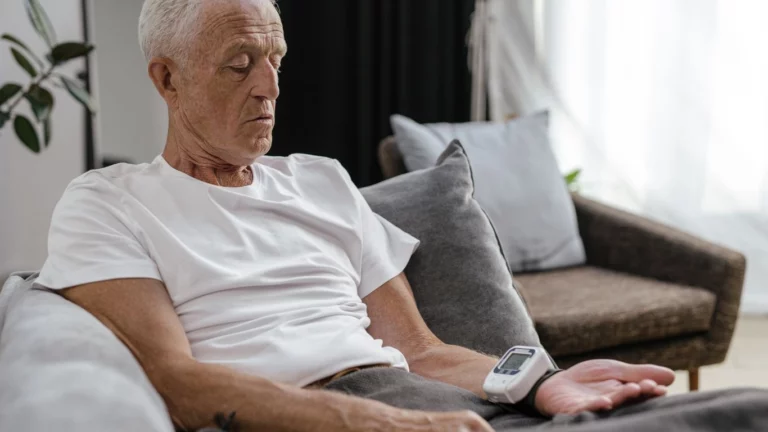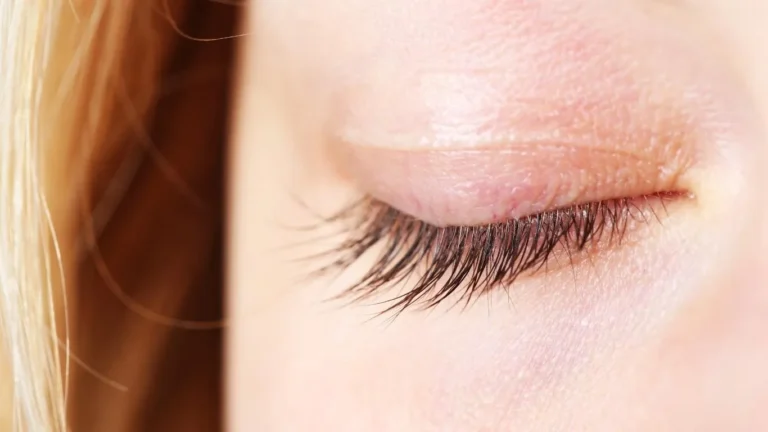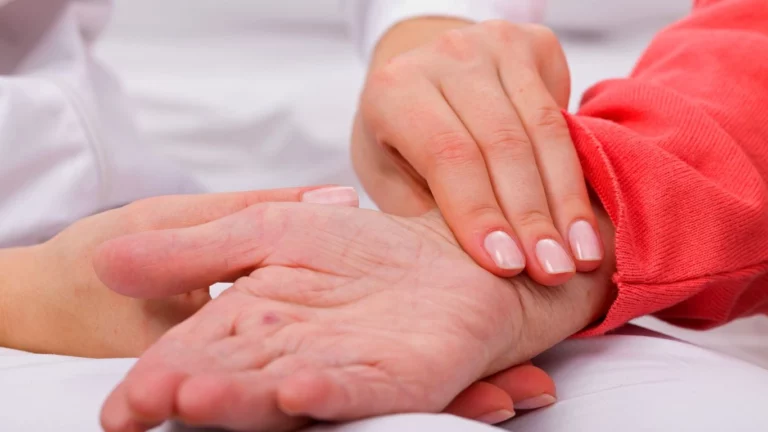Rheumatoid Arthritis and Sleep Apnea Connection – What You Need to Know
Are you dealing with rheumatoid arthritis (RA) and wondering if there’s a link to sleep apnea? You’re not alone! Many people with RA have noticed they’re dealing with sleep problems, and it turns out there’s a solid connection between the two. Here’s everything you need to know about how rheumatoid arthritis and sleep apnea might be related.
If you’ve been struggling with rheumatoid arthritis, you’re probably already familiar with the constant aches and pains that come with it. But did you know that RA can also mess with your sleep? In fact, there’s a pretty strong connection between RA and sleep apnea, and it’s more common than you might think. In this article, we’ll take a deep dive into how these two conditions are linked, why they might show up together, and what you can do about it.
Why Does RA Cause Sleep Problems?
First off, let’s talk about why people with RA often have trouble sleeping. Rheumatoid arthritis is an autoimmune disease that causes inflammation in your joints, but that inflammation doesn’t just affect your knees and wrists. It can spread throughout your body, making things like falling asleep and staying asleep a real challenge. Pain, stiffness, and discomfort are all factors that make it harder to get quality rest. And as you probably know, poor sleep can make your symptoms worse, creating a vicious cycle.

Sleep Apnea: The Silent Sleep Thief
So, where does sleep apnea come into play? Sleep apnea is a condition where your breathing is interrupted while you’re sleeping. This can happen in two ways: obstructive sleep apnea (OSA), where your airway becomes blocked, and central sleep apnea, where your brain doesn’t send the right signals to your muscles to control breathing.
It’s important to note that many people with sleep apnea don’t even realize they have it. You might wake up feeling groggy, struggle with fatigue during the day, or find yourself snoring louder than usual. But if left untreated, sleep apnea can lead to serious health problems like heart disease, high blood pressure, and even strokes.

The RA and Sleep Apnea Link
Here’s where things get interesting: Studies show that people with rheumatoid arthritis are more likely to develop sleep apnea. One of the reasons for this connection is the inflammation caused by RA. Inflammatory factors affect the muscles and tissues in your throat, increasing the likelihood of airway obstruction during sleep. Additionally, people with RA may have a higher risk of obesity, which is another risk factor for sleep apnea. If you have both conditions, you’re facing an uphill battle when it comes to getting restful sleep.
Why Does RA Increase the Risk of Sleep Apnea?
There are a few reasons why RA could raise the chances of developing sleep apnea. For starters, joint inflammation, especially in the neck, can make it harder for your throat muscles to stay open at night. This can cause breathing to stop intermittently as you sleep. Also, some medications used to treat RA, like steroids, can contribute to weight gain, which, as we mentioned earlier, is another big risk factor for sleep apnea.

In addition, sleep apnea and RA share some common symptoms like fatigue and difficulty concentrating. So if you already have trouble getting a good night’s sleep because of your RA, sleep apnea could make it even harder.
How Can You Tell if You Have Both Conditions?
If you have RA and are feeling super tired during the day, you might be dealing with sleep apnea on top of everything else. Some signs to watch out for include:
- Loud snoring
- Gasping or choking during sleep
- Waking up with a dry mouth or sore throat
- Feeling exhausted even after a full night’s rest
- Trouble concentrating or feeling groggy during the day
If you notice these symptoms, it’s a good idea to talk to your doctor. They might recommend a sleep study to figure out if sleep apnea is the culprit.
What Can You Do About It?
If you’re dealing with both RA and sleep apnea, managing your symptoms is key to improving your quality of life. Here are some tips for getting better sleep and easing the effects of both conditions:
- Talk to Your Doctor About Treatment Options – Your doctor will be your best resource in managing both RA and sleep apnea. There are several treatment options for sleep apnea, including CPAP therapy (continuous positive airway pressure), which helps keep your airways open while you sleep. For RA, medication and physical therapy can help reduce inflammation and pain.
- Keep an Eye on Your Weight – If you’ve gained weight due to medications or other reasons, focusing on maintaining a healthy weight can reduce the risk of sleep apnea. A balanced diet and regular exercise can go a long way in managing both conditions.
- Create a Sleep-Friendly Environment – Since pain and discomfort can keep you awake, create a cozy, supportive sleep environment. Invest in a good mattress and pillows that provide proper support for your joints. Keeping your room cool and dark can also help promote better sleep.
- Practice Good Sleep Hygiene – Stick to a consistent bedtime routine, avoid caffeine and alcohol close to bedtime, and limit screen time. Establishing a regular sleep schedule can help you fall asleep faster and stay asleep longer.
- Consider Breathing Exercises – Certain exercises, like deep breathing or even yoga, can help you relax and improve your sleep quality. If you have sleep apnea, these exercises may even help open your airways slightly, although they’re not a replacement for CPAP therapy.
Conclusion
In short, there is a definite connection between rheumatoid arthritis and sleep apnea, and if you’re dealing with both, you’re not alone. The good news is that with the right treatment plan, you can manage both conditions and improve your sleep. Don’t hesitate to reach out to your healthcare provider if you suspect that sleep apnea might be making your RA symptoms worse. Better sleep can mean less pain, better health, and an overall better quality of life.
Appendices
FAQs
- Can sleep apnea be treated if I have rheumatoid arthritis? Yes! There are treatments for sleep apnea, such as CPAP machines, that can help manage the condition even if you have RA.
- How do I know if my tiredness is due to RA or sleep apnea? Both conditions cause fatigue, but sleep apnea symptoms like snoring or choking while you sleep can be clues that it’s affecting your sleep quality.
- Can weight loss help with both RA and sleep apnea? Yes, maintaining a healthy weight can ease the burden of both conditions. It can reduce inflammation in RA and decrease the severity of sleep apnea.
- Is sleep apnea common in people with RA? Yes, studies have found that people with RA are at higher risk for sleep apnea due to factors like inflammation and medication side effects.
- What should I do if I think I have both RA and sleep apnea? It’s a good idea to talk to your doctor. They can help you manage both conditions through a combination of therapies and lifestyle changes.
References
- National Institute of Arthritis and Musculoskeletal and Skin Diseases (NIAMS). (2024). Rheumatoid Arthritis. NIAMS
- American Sleep Apnea Association. (2023). Sleep Apnea and Its Relationship with Rheumatoid Arthritis. Sleep Apnea Association
- Smith, R., & Miller, P. (2022). The Impact of Rheumatoid Arthritis on Sleep Disorders. Journal of Rheumatology, 54(4), 234-245. Journal of Rheumatology
Disclaimer
The information provided in this article is for educational purposes only and should not be considered as medical advice. Always consult your healthcare provider before making decisions related to your treatment or health concerns. Individual needs may vary, and professional guidance is crucial for personalized care.

Tarra Nugroho is a dedicated Nurse Practitioner with a strong foundation in family and preventive care. She brings both compassion and clinical expertise to her practice, focusing on patient-centered care and health education. As a contributor to Healthusias.com, Tarra translates medical knowledge into clear, empowering articles on topics like women’s health, chronic disease management, and lifestyle medicine. Her mission is simple: help people feel seen, heard, and informed—both in the clinic and through the content she creates. When she’s not caring for patients, Tarra enjoys weekend hikes, plant-based cooking, and curling up with a good health podcast.







